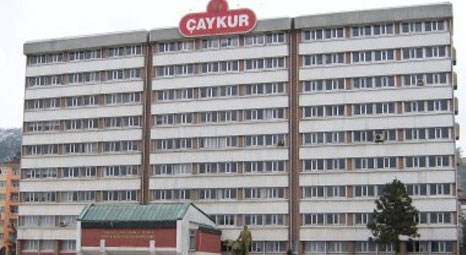
Turkish Businesses Seek to Open North Caucasus to the Outside World
Publication: Eurasia Daily Monitor Volume: 11 Issue: 163
By:

On September 7, representatives of the Turkish government-owned company Caykur met with North Ossetia’s Prime Minister Sergei Takoev to discuss an investment project in the Russian republic. Caykur applied for a swath of land in North Ossetia on which to build a tea packing plant (osradio.ru, September 8). Even though the Turkish company’s plans are still under consideration, if they proceed as planned, it will be the first investment by a major foreign investor in North Ossetia. Caykur made its interests known back in August; its CEO Imdat Sutluoglu visited the republic and stated that the company wanted to enter Russia’s tea market, using North Ossetia as a gateway. The company’s investment is estimated at tens of millions of dollars, which is an astounding figure for tiny North Ossetia. Since the company is owned by Turkey’s government, Ankara must officially approve the plan, and is expected to make a decision sometime before spring 2015 (Vestnik Kavkaza, August 22).
Caykur is Turkey’s leading tea company, with 60–65 percent of the Turkish tea market and about 16,500 employees (caykur.gov.tr, accessed September 17). The company’s yearly revenues are estimated at $750 million (Kavkazky Uzel, September 8).
The significance of the news about the Turkish company’s plans in the North Caucasus is less about the economy as about politics. The Turkish state-owned company’s bid to invest in the North Caucasus suggests Ankara has a significant interest in establishing a presence in the region. It also means that the Russian government in Moscow has approved the Turkish company’s presence in the North Caucasus or is inclined to allow it. Turkey’s interests in the North Caucasus are informed by the country’s commercial interests in relation to the large Russian market. Turkey also has political interests in nearby Muslim-populated areas that have long-standing historical connections to it.
The Russian government’s motives for allowing in a Turkish company are less clear. Moscow has discouraged foreign investment in the North Caucasus in various ways, its primary reasoning probably being that independent revenues for local budgets might fuel separatism in the region. This, however, was a viable policy only when Moscow was able to provide increasingly lavish financing to the North Caucasus. Russian budget’s revenues are projected to fall significantly in the coming years or even months. The already precarious condition of the Russian economy has been further aggravated by Western economic sanctions for Moscow’s annexation of Crimea and continuing covert invasion of Ukraine.
Some people in the Russian government apparently anticipate an abrupt drop in revenues that would prevent it from financing the North Caucasus as it had previously. Russia’s minister for North Caucasian affairs, Lev Kuznetsov, has hinted that belts will have to be tightened. Even though Moscow is still in a state of denial about the problems it might face in the North Caucasus or elsewhere in the country because of the Western economic sanctions and drop in budget revenues, government programs are being cut and administrative control is increasing. In an interview with the Russian magazine Profil, Kuznetsov even denied that there were any specific problems pertaining to the North Caucasus. The minister did not explain why there is a special ministry for North Caucasian affairs if the North Caucasus is just another Russian region (profile.ru, August 29).
The Turkish government may view North Ossetia as a convenient hub to establish a presence in the North Caucasus because the republic is relatively calm and is on one of only three functioning highways connecting the South Caucasus and Turkey to the North Caucasus. There are also substantial people-to-people networks given that a small, but vibrant Ossetian diaspora settled in the Ottoman Empire after the Russian conquest of the North Caucasus in the 19th century. To Russians, the Turkish presence in North Ossetia is probably not seen as unacceptable as it would be perceived in Dagestan or Kabardino-Balkaria. The republic’s population is predominantly non-Muslim and not known for having separatist sympathies.
Turkish moves into the North Caucasus also may have purely geographic and economic explanations. As time goes by, the regional economies tend to become more “natural,” reflecting realities on the ground rather than the political preferences of the governments. Turkey is a large and rapidly developing country that is geographically close to the North Caucasus. The driving distance between Istanbul and Vladikavkaz, the capital of North Ossetia, is about the same as the driving distance between Moscow and Vladikavkaz, roughly 1,100 miles. The Turkish Black Sea port city of Trabson is less than 500 miles away from Vladikavkaz by car, which is comparable to the distance between Vladikavkaz and the Russian Black Sea port cities. Even though the Russian government has generally kept Turkey out of the North Caucasus, external and internal shocks were bound to change this unnatural state of affairs. Whether now or later, geographic and economic realities will eventually kick in and Turkey, as a large and economically significant power, will establish and expand its presence in the North Caucasus.




